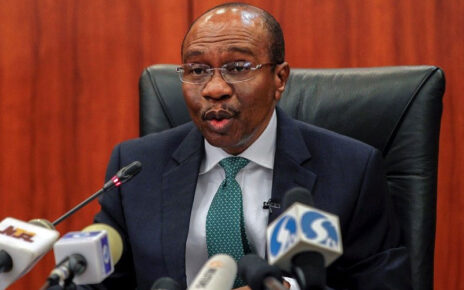The Securities and Exchange Commission (SEC) Nigeria has expressed optimism that the passage of the Investments and Securities Bill (ISB) 2023 and its signing later by the President will create new investment opportunities in the nation’s capital market and improve its contributions to the Gross Domestic Product (GDP)
The commission’s Director-General, Mr. Lamido Yuguda, pointed out that a recommendation in the Bill for the inclusion of the National Pension Commission (PenCom) on the SEC Board was desirable as it will strengthen the tow agencies’ collaboration, particularly to encourage greater investment of pension funds and in capital market products/instruments.
Highlighting some of the key amendments in the Bill, Yuguda explained that the Bill expanded the categories of issuers as a key step towards the introduction of innovations and offerings such as crowd-funding as well as the facilitation of “commercial and investment business activities”, subject to the approval of the Commission and other controls stipulated in the Bill.
He said: “The Bill expands the definition of a Collective Investment Scheme to include schemes offered privately to qualified investors. Minor reviews on various Sections of the extant law have been carried to provide greater clarity.
“Importantly, the Bill introduces an express prohibition of Ponzi/Pyramid Schemes and other illegal investment schemes. The Bill also prescribes a jail term of not less than 10 years for promoters of such schemes.
“This Bill contains an entirely new part which regulates Commodity Exchanges and Warehouse Receipts. These provisions are essential for developing the entire gamut of the Commodities ecosystem,” the Director-General added.
According to him, a new part on the management of systemic risk has been introduced, covering the following themes: monitoring, management and mitigation of systemic risk in the Nigerian capital market; arrangements with other regulators relating to information required from entities that are regulated by other regulators; sharing of information between financial sector regulatory authorities or government agencies; and use of a legal entity identifier to provide for proper monitoring of systemic risks.
Yuguda further clarified: “Securities Exchanges are now classified into composite exchanges and non-composite exchanges. A composite exchange is one in which all categories of securities and products can be listed and traded. In contrast, a non-composite exchange focuses on a singular type of security or product.
“Furthermore, the duties/responsibilities of Exchanges have been expanded, and the conditions for revocation of registration clearly stated. There are also new provisions on Financial Market Infrastructures such as Central Counter Parties, Clearing Houses, Trade Depositories etc,” he added.




